Check out some books by your tutor Fiona Veitch Smith … (click on the book covers to find out more)
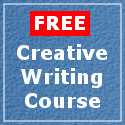 Hello everyone, welcome to the first session of our free online creative writing course. Over the next eight sessions we will be looking at different aspects of creative writing and trying our hand at various forms. I’d strongly encourage you to have a go at the exercises along the way, and please feel free to leave comments or ask questions at the end. If you have arrived on this page without first reading the home page and frequently asked questions page (on tab above) please go back and do so now. If you have read them, enjoy the course!
Hello everyone, welcome to the first session of our free online creative writing course. Over the next eight sessions we will be looking at different aspects of creative writing and trying our hand at various forms. I’d strongly encourage you to have a go at the exercises along the way, and please feel free to leave comments or ask questions at the end. If you have arrived on this page without first reading the home page and frequently asked questions page (on tab above) please go back and do so now. If you have read them, enjoy the course!
Creativity and Art
What is creativity? The Collins dictionary defines it as ‘the ability to cause something to exist’. Without getting into too much of an existential discussion, I would say that with every thought that is expressed, something has been created. It was Descartes who said: ‘I think, therefore I am’; well I would add, ‘I think, therefore I create’ (do you feel a God complex coming on?). But how do we express our thoughts? Sometimes we do it verbally, other times by body language and still again through what is loosely termed ‘art’.
Art takes place when a thought is expressed and fixed in a way that other people may experience it on an aesthetic level – through music, writing, painting, sculpture, choreography and so on. Many artists say that their best work takes place when they ‘by-pass’ the thought and simply express the feeling. This may be true, but for writers, who use a verbal medium, a feeling must first be converted into a thought before it can be put into words. Don’t over analyse the thought before you express it, as this way you can ‘channel’ the purest interpretation of the feeling, but some cognitive process needs to take place. Some writers prefer to mull over a thought and give it form before they put pen to paper – I’m one of them – but it’s good practice to try and switch off the ‘editor’ at least for the first draft. First response trigger exercises are useful in this regard and can release some unexpected words and images.
Exercise 1:
Write down your first response to these words or phrases:
- Blue ball
- And that’s when the sadness came
- Coffee
The first task of a good writer is to convert feelings into thoughts and then into words. This is the raw material that can then be converted into something more permanent. Some writers refuse to toy with their first drafts, believing their creativity will be diluted; I disagree. Allowing your critical mind to improve a piece of writing is where the craftsman meets the artist. Something produced only by the former will lack soul and something by the latter will lack form. Good writing is a combination of art and craft.
For public consumption
Art, of course, is highly subjective and one woman’s masterpiece is another woman’s unmade bed. We all have the ability to create, but whether or not our creation is ‘art’ must be left to the eye or ear of the beholder.
In this session we will look at how you can craft those creative thoughts into creative writing to share with other people. And that’s what sets ‘public’ writing apart from ‘private’ scribblings – there’s a perceived readership in mind. When I ramble on in my journal, I am the only one who will read it (hopefully!) so my only concern is getting my thoughts down on paper. The moment I want someone else to read it I begin to consider ways to improve the presentation and craft it into something more aesthetically pleasing. I consider which words may sound more colourful, whether or not my sentence structure is grammatically correct, whether I’m using evocative imagery, and so on.
Story, feeling or image?
What is it about those creative thoughts that you think might be of interest to other people? Do they speak of an eternal truth or a common experience? Do they make you laugh or cry? Do they suggest a story that will entertain or a poem that captures a moment that must be shared?
Exercise 2: In 50 words or less write down why you want to write then list three creative thoughts that you’ve had lately (each 10 words or less). These may be an image, a musing, a ‘truth’, a story, or so on. If you haven’t had any, take yourself for a walk and look around; what grabs your imagination? Browse through a newspaper or a magazine; do any stories or pictures catch your attention? Think back over your day; did anything funny, charming, shocking or unusual happen to you or someone you know?
Poetry or prose?
Some people are more suited to writing poetry than prose and some people do well at both. Although we won’t be discussing it in this course, other people are more suited to script. I’m one of them. I’ve had relative success as a prose writer and in fact have managed to earn a living from it, but it’s taken years of hard work to get to this point. I recently branched out into scriptwriting and found that I had much more of a natural ability. (If you’re interested in finding out more about scriptwriting, check out getting started in playwrighting). You may find that you’ve been trying to make it as a poet when actually you’re more suited to prose. Now I don’t want to pigeonhole anyone, but ask yourself the following questions:
- Are you more attracted to films than stills?
- Do you enjoy telling people ‘stories’ from your life?
- Do you prefer to read stories or poems?
If yes, to these, then you may be more suited to prose than poetry. If no, then the opposite may be true. If it’s ‘sometimes yes, sometimes no’ then perhaps you are suited to both. We shall be looking at how to write poems in more detail in session 7, but suffice to say, a poem is like a snapshot of a moment. If you can’t rest until you know what happened before and after, then prose may be your genre.
Exercise 3: Take one of the three creative thoughts you wrote down in Exercise 2, then list 20 separate words that communicate or describe that thought. Do not, at this stage, link the words into sentences. Once you have your 20 words use them in a poem of 16 lines or less. Then, take the same 20 words and work them into a short story of under 300 words. Which exercise came more easily? Which form has best communicated your creative thought?
Further Resources:
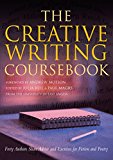
There are some excellent resources out there for creative writers. To get quick ‘starter’ images when your own well is dry I recommend The Writer’s Block by Jason Rekulak. I’m currently working through The Creative Writing Coursebook by Julia Bell and Paul Magrs and finding it very useful.
The next creative writing course session is how to write a short story. But before you move on to that, please feel free to leave a comment or ask a question in the box below.
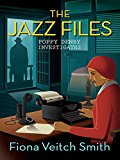
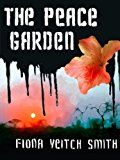
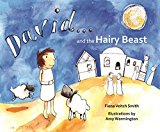
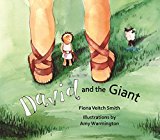
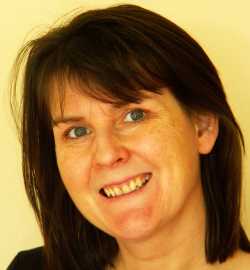 Welcome to The Crafty Writer's free online creative writing course, presented by Fiona Veitch Smith, a freelance journalist, editor, author, playwright, screenwriter and writing teacher. I hope that you'll see a dramatic improvement in the quality of your writing as you work through this course.
Welcome to The Crafty Writer's free online creative writing course, presented by Fiona Veitch Smith, a freelance journalist, editor, author, playwright, screenwriter and writing teacher. I hope that you'll see a dramatic improvement in the quality of your writing as you work through this course.
I just made the 20 word list. This simple exercise is a great start for what I want to do. I know I have a book hiding inside my head, and I’m very glad I found your blog. My feeling is I was severely blocked by a career requiring other sorts of specific writing, most decidedly not creative. I would like to keep at this until I reach my goal and hopefully get published! Thanks for creating this site.
Happy to help with the unblocking, Juilie.
I’ve written an autobiography and some short stories…just enough to know I need some direction..I hope your courses will help.
I want to be a novelist i have so many ideas i just never know where to begin on paper
Hi Fiona,
Thanks for making me sit back and really give honest consideration as to why I want to write. It took me more than 50 words – which I didn’t expect it would – to formulate an answer! Thanks a million for getting me to this place of introspection; only to find out that I can’t not write; I must include God and the Holy Spirit in the creative process,if only for the sake of mere acknowledgement, even if my work will not always be Christian literature and filled with biblical-based language. Thank you Fiona.
Sermantha ‘SAM’ Louisy
That’s wonderful news Sam. I know what you mean about not ‘not’ being able to write. God bless you.
This is fun. Can’t wait to see what’s next.
I loved it. I feel that something special is starting. Your exercise of writing a story under 300 words helped me to write about my beautiful Saturday morning walk. Thank you! I feel energized and excited.
Hurrah!
This is a great course. Thank you for sharing this with us. I have always loved to write and never realized my writing style could lead to playwrighting until I answered those three questions. Food for thought indeed.
Very interesting. You should consider doing a short course on playwrighting then. The Open University have very good ones at a reasonable price.
I have been able to write for years in ways that connects with others emotions. I find this type of writing to be a real struggle for me, which does not make sense. Thanks for posting the exercises. Only by working out do we improve.
I like the idea of writing down 20 words and then either writing a poem or a 300 word story. You quickly know which vein suits you best.
What you’re doing is amazing , wish more people would realise that a candle loses nothing by lighting another candle
hi, I am trying to equate creative writing with oral history, or use it in assingments on college disciplines, some tutors prefer an essay type format, were as others prefer just summaries of the topic.
Are story tellers born or are they crafted? I think a good story teller need not be fully or have any degree of education and that it comes naturally to them, where as the person trying to learn the craft, it becomes more laboured, but it can be a work of excellence never the less.
Hi William, I agree that storytellers are born. You see it in children who hold their schoolmates attention as they regale them of their exploits. In non-literate cultures the storyteller is a highly prized individual in the community. But I stand by what I say: if you want to write you need to learn your craft. I’m sure oral historians also learn to hone their skill by listening to more experienced ‘elders’. Knowing when to pause for best effect, knowing how to construct the narrative to build tension – this is all craft.
oh, and humility qualifies me to say that you have filled a need in me to get started in writing, and I love the tuition so far from “craft to art”, and I will injoy the rest of your exercises.
I have done all the exercises in this lesson and I am looking forward to doing the other lessons. Thank you for sharing your talent with all of us who are trying to learn to become writers.
hi!!!!
i love your site!!!!!
i m 15 & i m working on a novel
this is really helping me.
But can you let me know whether you have such online courses for more advanced writer who know the basics of creative writing??
i would be very glad!! thank you!!
Hi there, no this is the only free course I have. I do however give advice to more advanced writers through manuscript critiquing. This however is a paid-for service. If you would like more information on this, get in touch. Good luck with the novel!
Had a ball. Wrote one of my most “fun” pieces. THE MON IS MADE OF GREEN CHEESE
Pretty easy so far, as I have completed these exercises over the years without realizing ……
Hi Fiona,
Well that was a very interesting first exercise and I enjoyed doing it. Have ordered the ‘course book’ from the library and looking forward to reading it as I go through the next stages.
Regards
Mark
I found the first exercise hard, but I think it is becasue I am afriad of myself. Once I got going with exercise 2 and 3 I started to enjoy myself. Thank you for putting this on the web. x
The process of this course is very interesting, and I am enjoying it.
so good to learn new exercises that allow me to expand my creativity.